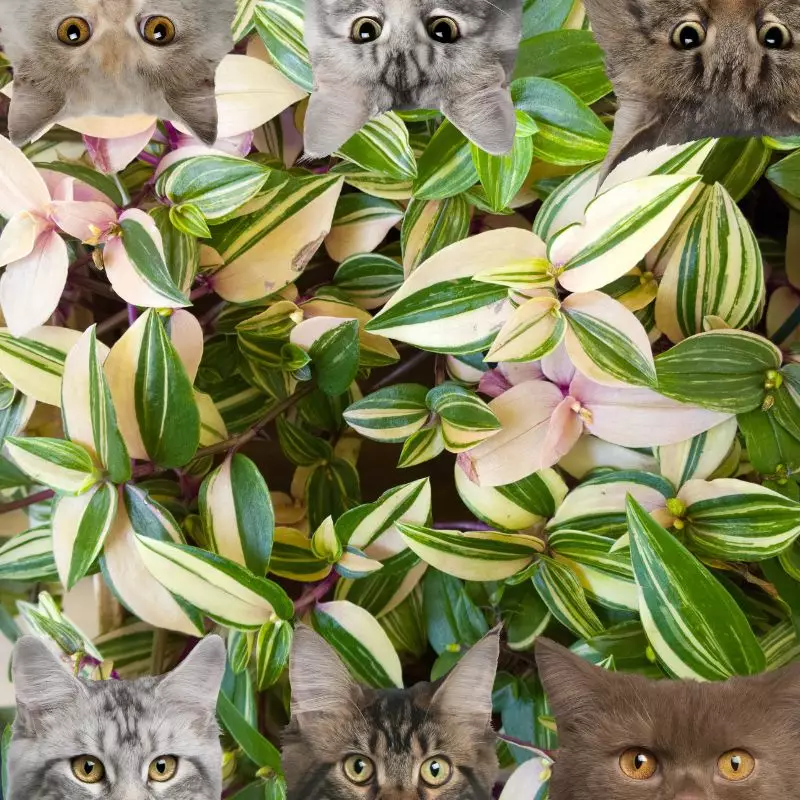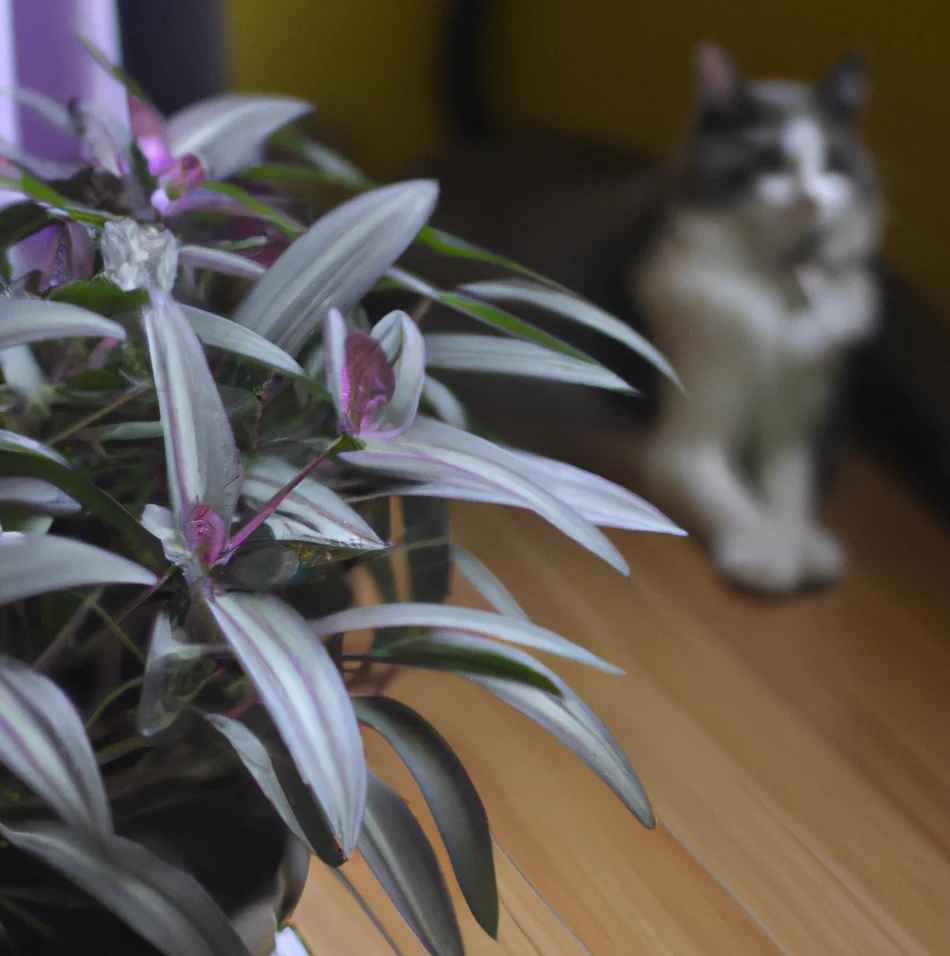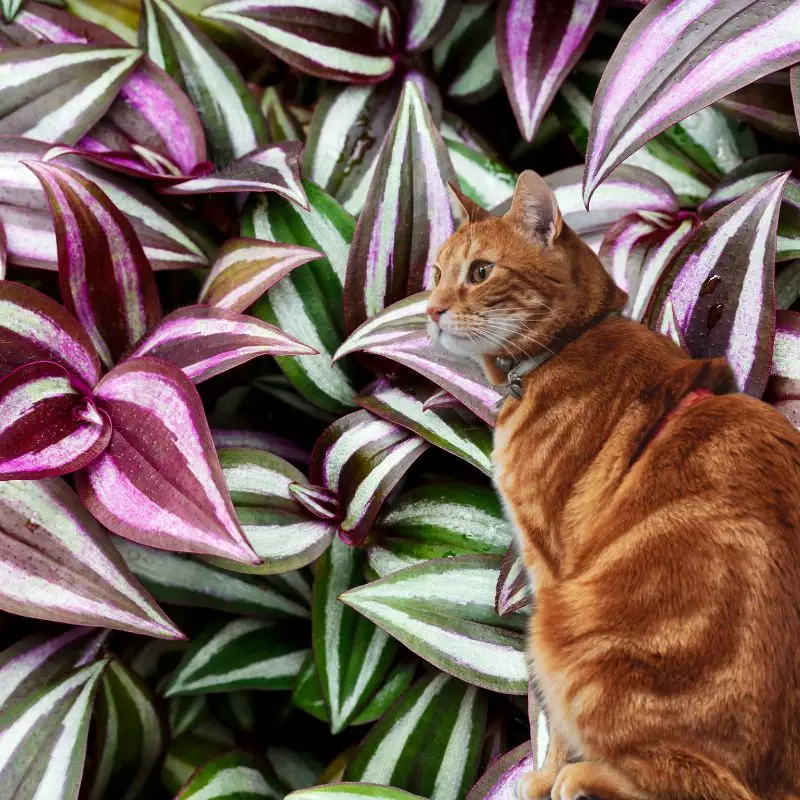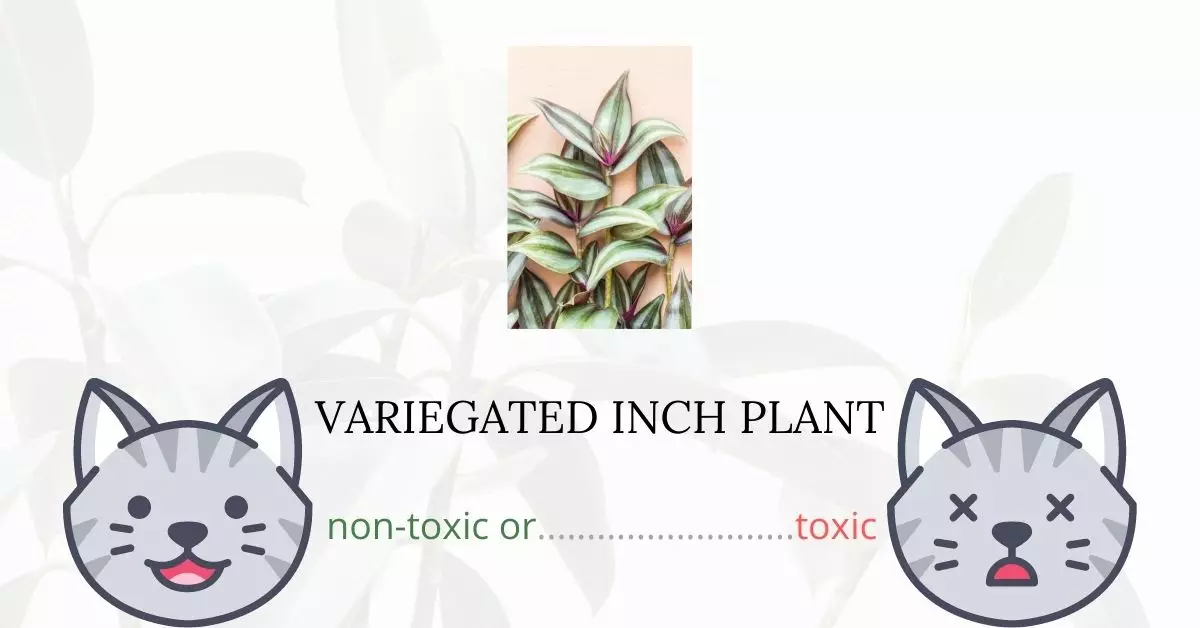The Variegated Inch Plant, also known as the Wandering Jew or Speedy Henry, poses toxicity risks to cats when consumed and is identified as an invasive weed in some regions.
We have composed this article in partnership with a team of seasoned Doctors of Veterinary Medicine (DVMs) to bring you precise and current information about the potential dangers of this plant, specifically its effects on cats. Their extensive knowledge, coupled with rigorous research from high-authority websites such as ASPCA and PetMD, allows us to offer accurate insights into the impact of various plants, the Variegated Inch Plant in this instance, on our feline friends.
The exact toxic elements of the Variegated Inch Plant remain unidentified, however, the most frequent symptoms exhibited by cats after ingesting this plant include gastrointestinal disturbance and skin irritation. Although there is no recorded detrimental effect from consuming the leaves of the inch plant, it has been observed that the plant’s stem can induce the aforementioned symptoms in cats.
Clinical Signs of Variegated Inch Plant Poisoning in Cats

When a cat comes into contact with, smells, or consumes the Variegated Inch Plant, various clinical signs may manifest due to the plant’s toxicity. The following symptoms are typically observed:
1. Drooling:
Drooling is often the first observable sign and is usually a result of the cat’s body attempting to expel the toxic components it has consumed or come in contact with.
2. Itching, Swelling, or Redness:
These symptoms may occur in various areas of the body and are usually indicative of a localized allergic or irritant reaction to the plant. It typically results from the cat’s skin coming into contact with the plant’s sap or leaves.
3. Ulceration of the Palms:
The occurrence of ulcers on the palms is often due to prolonged contact with the plant, leading to irritation and subsequent damage to the skin’s surface.
4. Conjunctivitis:
When the plant particles or sap come in contact with the cat’s eyes, it can lead to inflammation of the conjunctiva, resulting in redness, swelling, and discharge, a condition known as conjunctivitis.
5. Skin Itching:
Persistent itching of the skin is usually due to an allergic reaction and can lead to the cat scratching the affected area excessively, potentially causing secondary infections.
6. Loss of Hair or Fur:
Hair or fur loss can be observed due to excessive scratching or grooming in response to skin irritation or itching induced by contact with the plant.
7. Secondary Infections:
As the cat scratches or bites at the irritated areas, it may introduce bacteria to the wounds, leading to secondary infections that may require veterinary intervention.
Each of these clinical signs arises due to the body’s response to the irritants found in the Variegated Inch Plant. Early detection and veterinary consultation are crucial to managing the symptoms and ensuring the well-being of the affected cat.
First Aid and Treatment of Variegated Inch Plant Poisoning in Cats

If your cat is scratching excessively, your veterinarian will prescribe an ointment or drugs to relieve the scratching. It is possible that you may need to apply a lotion two to three times each day, but it has been demonstrated to be successful.
If your cat scratches repeatedly, he may develop a secondary skin infection that requires medication. Self-trauma can be reduced by using a buster collar and shortening claws.
The veterinarian may opt to give your cat intravenous or subcutaneous fluids depending on his needs.
IV fluids may also be administered to your cat. This will keep him hydrated as he waits for his symptoms to disappear. This is particularly likely if his mouth has been affected and he is unable to eat or drink.
If his eyes get sore, the vet may advise you to rinse them or prescribe an ointment or drops to use at home for a few days.
Recovery from Variegated Inch Plant Poisoning in Cats

Variegated inch plant poisoning symptoms are typically mild in cats. If treated right away, the cat will most likely recover. Immediate medical intervention is required to prevent further infection. If your cat gets a secondary infection, treatment and recovery may take longer.
Prevention of Variegated Inch Plant Poisoning in Cats
If you have variegated inch plants at home, you may use deterrents to prevent your cat from getting ear the plant. Ideally, it is still best to remove the plant completely. Keep your cat indoors to lessen the possibility of exposure to variegated inch plants and other poisonous plants outdoors.
If you love plants but have cats at home, check out these lists:





